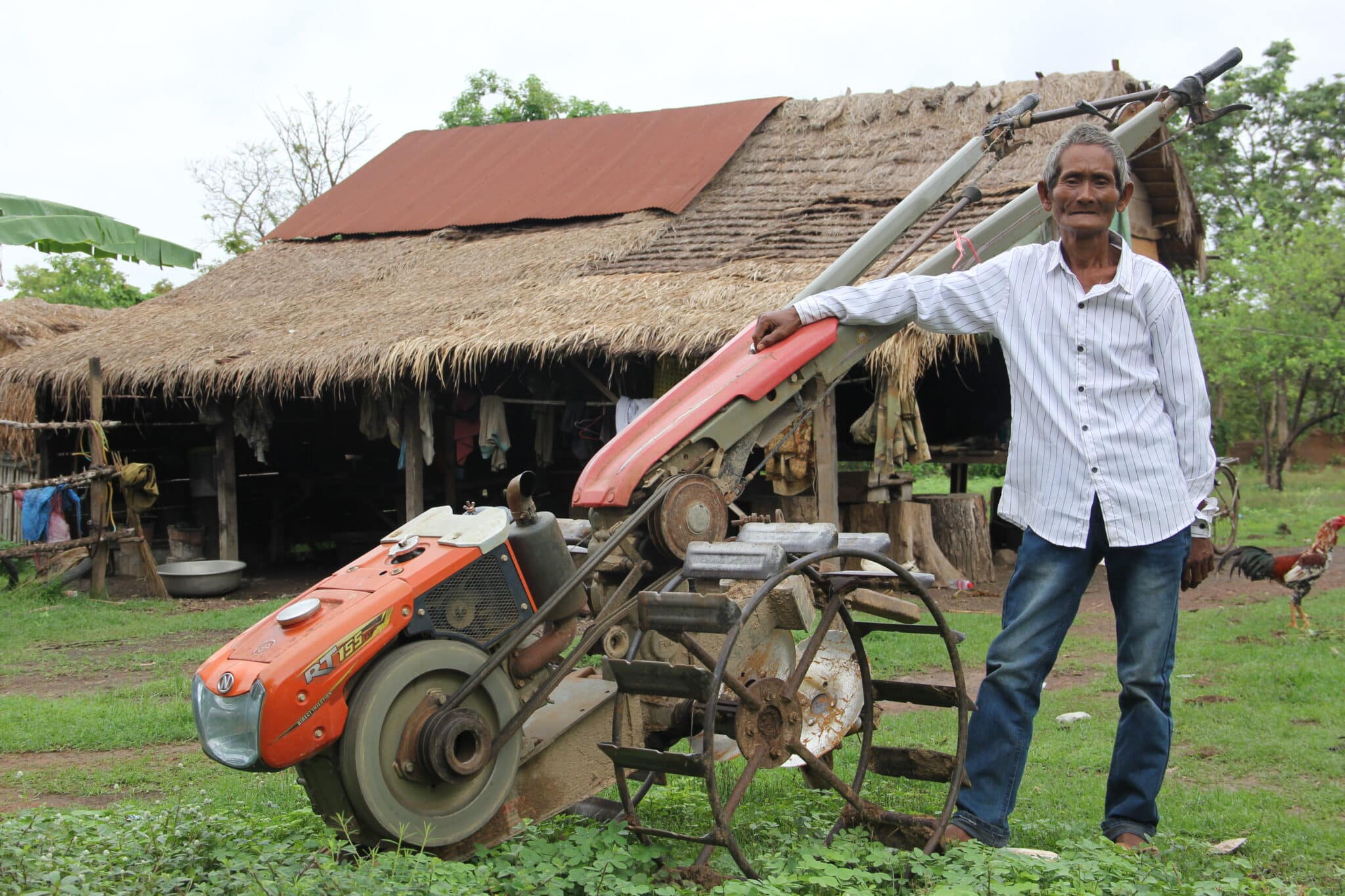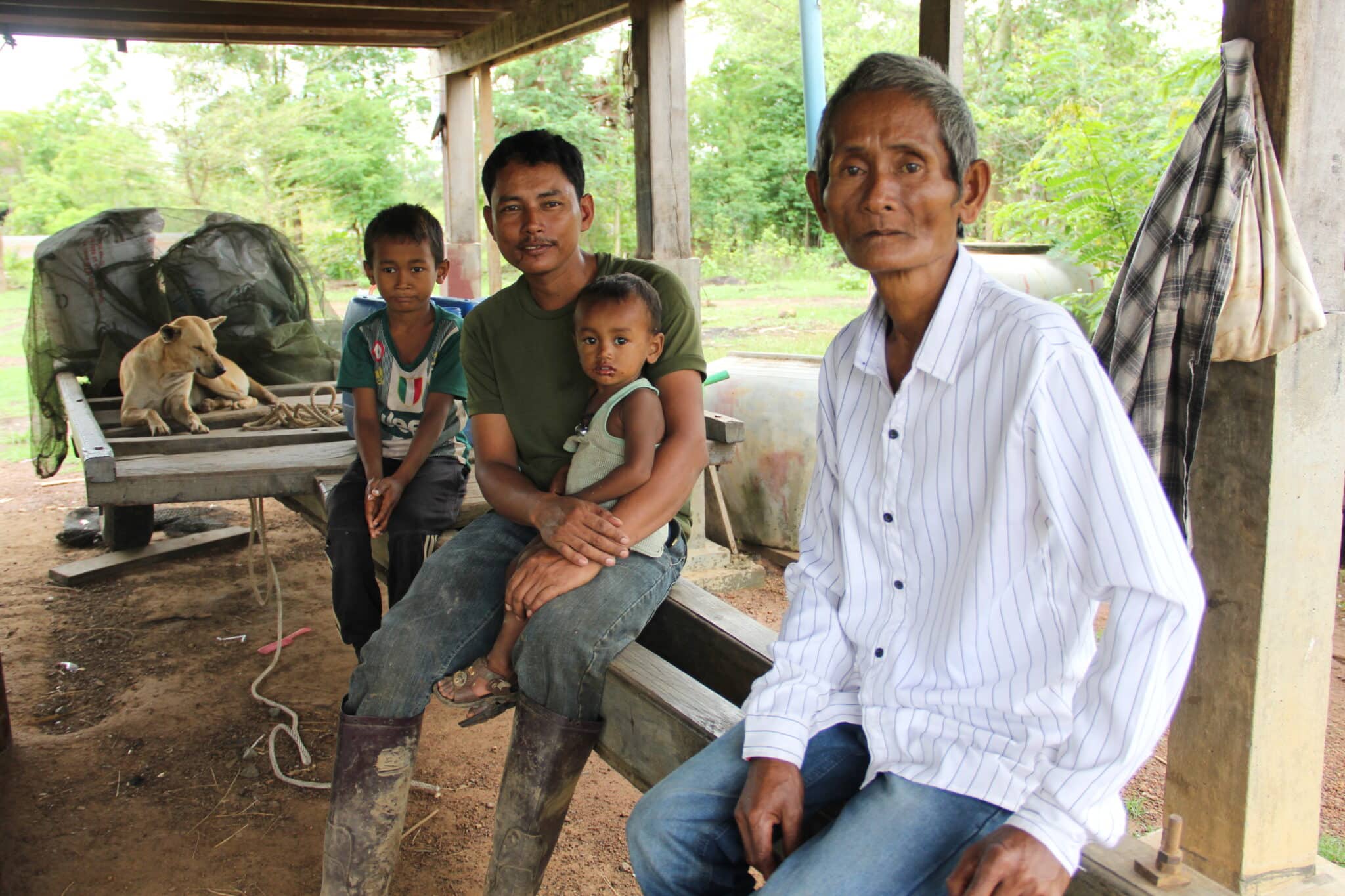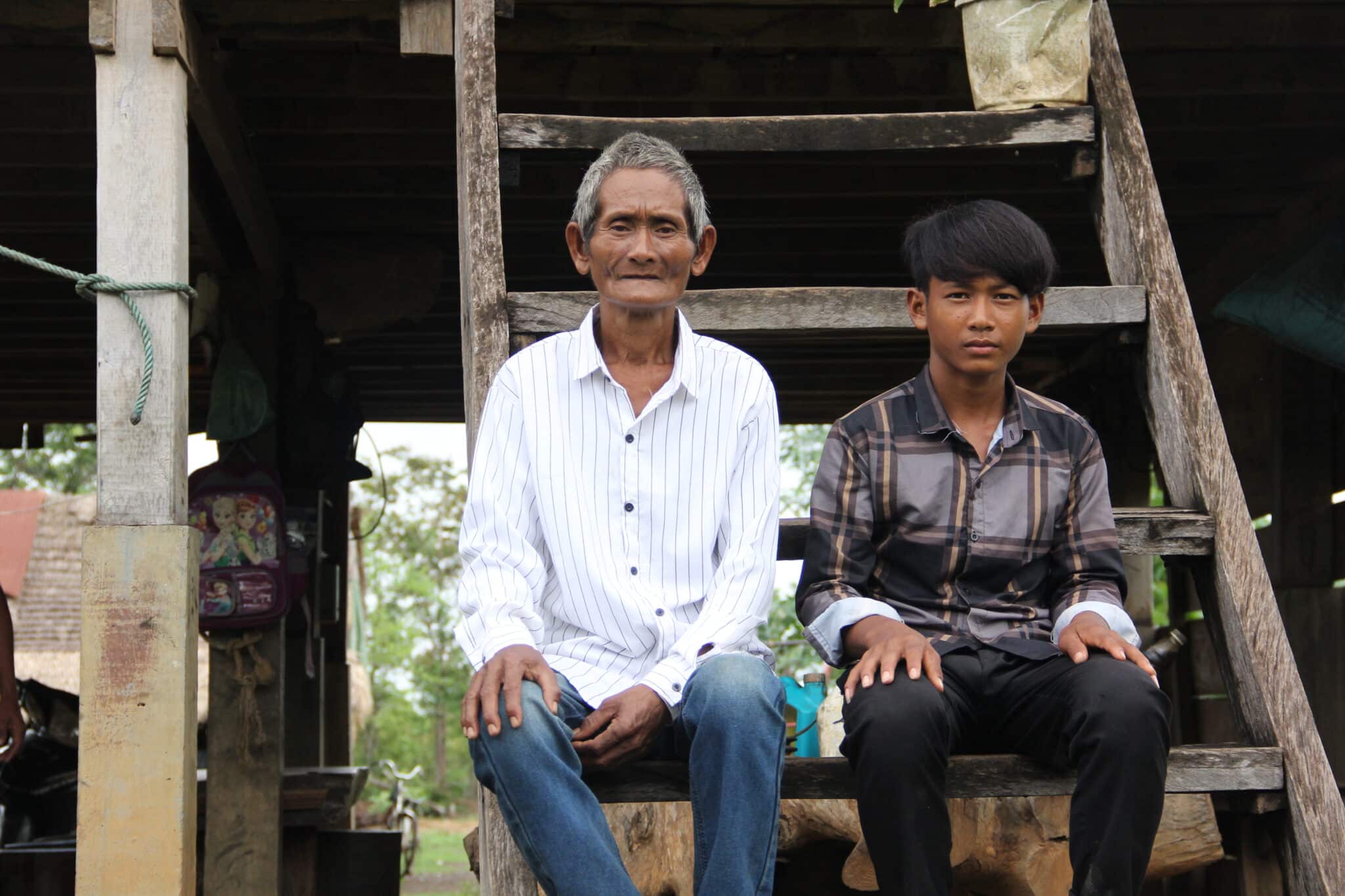From war zone to free land: Ten Ye can now grow more food to sustain his life
My name is Ten Ye, and I am 60 years old. I have been married twice and I have six children. Currently, I live with my second wife in Sraong village in Siem Reap province. My oldest daughter is married and lives in a different village. My youngest son, who is 16 years old, is studying in grade 7 at a nearby secondary school.
I have been a farmer since wartime. Back when landmines were present, life was extremely difficult. We farmers couldn’t use all our land to grow food or graze livestock such as cows, chickens, or buffalo. This severely limited our ability to earn a living. Life was hard, and fear was constant. We were always afraid to venture too far, terrified of stepping on landmines and being killed or injured. Children were aware of the dangers and couldn’t roam freely. Family and friends were too scared to travel or visit each other.

I was born and grew up in this community, which has been deeply affected by landmines. I knew they were somewhere behind my village, on my land, and along old roads that no one used anymore. Growing up during the war, I was constantly cautious about venturing into unknown areas. I still vividly remember a fierce skirmish between the Khmer Rouge and other soldiers while my children and I were in the rice fields. It was daylight; we suddenly heard gunfire, and I grabbed my two kids, holding them close as we ran for our lives. Like others in the village, during these battles, we had to find a safe place to hide, whether in a cellar or anywhere else that was available. Sadly, some people didn’t escape the bullets or rockets.
The presence of landmines affected us both emotionally and financially. We lived in constant fear, unable to find peace day or night. We couldn’t use our land for agriculture or grazing, which severely impacted our economy. Landmines meant our community couldn’t improve. Most of us were farmers and needed land to grow food or raise livestock, but the mines kept us in poverty.
After APOPO and its partners cleared all the landmines, life became very different. We can now grow more food—enough to sustain our families and sell for cash, improving our livelihoods. We can use all our land for grazing livestock like cows, buffaloes, and chickens. We feel safe and at peace, as if living in a new world on the same land. The children roam freely, and they can even hunt for food at night without fear of landmines. The whole village feels at ease; it’s as if a thorn has been removed from our chest. Now, we can travel everywhere, go to market using any road, saving both time and money.

During the war, the Khmer Rouge placed landmines to slow down or stop enemy attacks, while other soldiers laid mines to protect their bases.
People use bicycles, motorbikes, oxcarts, and small tractors for transportation. In the past, some people were killed while traveling. There was one terrible accident, among many: a family returning to the village from a nearby town when an anti-tank mine blew their oxcart into the sky, a woman’s skirt tragically caught on a tree and she died. The rest of the family was left shocked and saddened by the loss. Now, everything has changed. All the land is safe! Travel is easy and fast.
Seeing what the rats can do with the landmines and explosives was unbelievable! One day, watching the rats at work, I could hardly believe my eyes. But it’s true; the rats can detect landmines. Now we understand more about how animals can help us in different ways. Seeing what they can do was just…amazing! Now we know that rats aren’t bad as we previously thought; instead, they help us.


